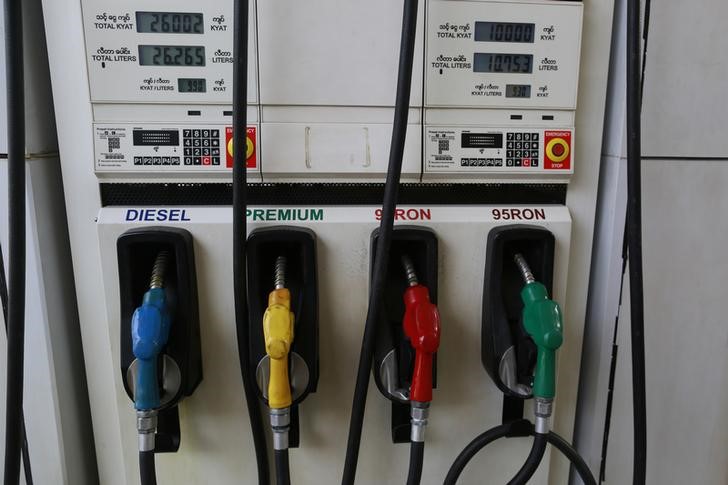(Bloomberg) -- The Covid-19 pandemic has upended conventional wisdom in oil markets (prices will never go negative) and car sales (electric vehicle numbers will fall off a cliff). At the end of the summer, it hit another decades-old trend, at least in the U.S. For the first time since at least 1960, U.S. personal consumption expenditure on electricity was higher than it was on gasoline.
That shift required two things to happen: personal consumption expenditure on gasoline and diesel had to fall alongside a spike in spending on electricity.
It’s striking even if it’s not that surprising. Driving fell dramatically when millions of adults began working from home, in effect transferring much of their work-related electricity consumption to their own power bills, which saw the biggest spike in the last 20 years.
Also striking is just how much road travel declined. U.S. motor gasoline demand—a good proxy for the amount of driving Americans are doing—was down to just over 5 million barrels per day in April, barely half what it was at the beginning of the year and the lowest level on record since 1990.
Was there a price effect? That would be seen if people ended up spending less on gas not just because of needing less but due to lower costs. The answer is mixed. The U.S. consumer price index for gasoline fell earlier this year, but it dropped lower in 2016 and 2008. The electricity CPI, meanwhile, has barely budged in six years.
This inversion in U.S. energy consumption clearly required an unusual confluence of pandemic factors. So will it happen again?
Consider this: A large-scale shift in how we energize our transportation, from gasoline and diesel to electricity, would likewise shift our spending from fuels to electrons. That shift would also have the effect of lowering total personal consumption expenditures on energy—300 miles of electric driving has a far lower energy cost than 300 miles of internal combustion engine driving. The historically volatile price of motor fuels would also give way in cultural primacy to the historically much less volatile price of electricity.
This potential shift is not immediate, certainly. Buyers will need to gravitate towards electric vehicles in sufficient numbers, and internal combustion engine vehicles, which now have average lives of 12 years, will need to retire. It’s a ways off, even with California requiring all vehicles sold by 2035 to be zero-emissions.
A year ago, it seemed like it would take decades for Americans’ spending on electricity to exceed our spending on motor fuel. Covid-19, though, is an accelerator of personal consumption trends, pushing patterns in energy forward by years, just as it has in retail and e-commerce.
©2020 Bloomberg L.P.
